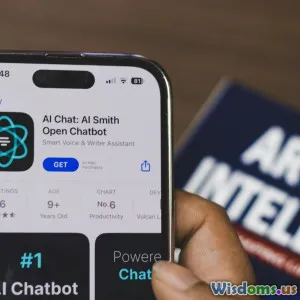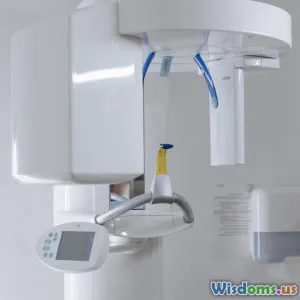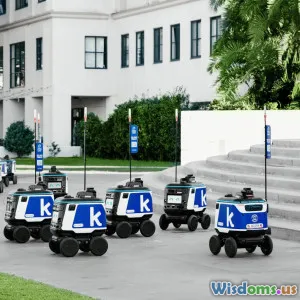
AI Innovations in Everyday Automation
7 min read Explore AI innovations transforming daily automation, from smart homes to personal assistants enhancing everyday life seamlessly. (0 Reviews)
AI Innovations in Everyday Automation: Transforming Our Daily Lives
Artificial Intelligence (AI) has seamlessly infiltrated almost every facet of human life, bringing unprecedented progress in automation. From smart thermostats adjusting your home's temperature to virtual assistants helping manage your day, AI innovations are no longer futuristic concepts but everyday realities. This transformation sparks a revolution shaping how people interact with technology, optimizing time and efficiency.
Introduction: Awakening to an Automated Era
Imagine waking up in a house that anticipates your needs — the blinds lift gradually as sunlight creeps in, your coffee machine starts brewing your favorite blend, and your calendar gently nudges you about an upcoming meeting with a personalized reminder. Such convenience is powered by AI-driven automation, creating a harmonious ecosystem designed to simplify life. What once sounded like science fiction is now embedded in many households and workplaces, thanks to ongoing AI innovation.
The Core Drivers Behind Modern Automation
To appreciate current AI developments, it's vital to understand the technologies making them possible:
- Machine Learning (ML): Underpins systems that learn user preferences to improve personalized experiences.
- Natural Language Processing (NLP): Enables machines to understand human speech for conversational interfaces.
- Computer Vision: Allows devices to interpret visual data, crucial for applications like security automation.
These technologies work in tandem, forming an intelligent backbone automating myriad repetitive and complex tasks.
Smart Homes: The Epitome of Everyday Automation
One of the most visible impacts of AI innovations is on the residential front. Smart homes illustrate AI’s potential to automate routine activities through interconnected devices.
-
Energy Optimization: Thermostats like Google Nest analyze occupancy patterns and weather forecasts, cutting energy consumption by up to 15% annually. This not only reduces utility bills but lowers carbon footprints.
-
Security Enhancements: AI-powered cameras use computer vision to distinguish between family members, visitors, and potential intruders, significantly reducing false alarms while beefing up safety.
-
Voice-Controlled Automation: Devices such as Amazon Alexa or Apple’s Siri operate as personal assistants managing lighting, music, and even grocery orders with simple voice commands. This technology affords accessibility benefits for differently-abled individuals.
Case Study: Philips Hue Lighting System
Philips Hue transforms home lighting into a customizable experience, enabling users to automate ambiance based on time, mood, or activity, demonstrating the blend of AI and IoT (Internet of Things) to enrich lifestyle.
Workplace Automation: Beyond Traditional Boundaries
AI is equally transformative in professional environments, automating tasks that save time and reduce human error.
-
Virtual Assistants for Scheduling: Tools like Microsoft's Cortana or x.ai use advanced NLP to handle complex scheduling negotiations across diverse calendars, slashing administrative workload.
-
Robotic Process Automation (RPA): Employed in finance and HR sectors to process invoices, payroll, or compliance checks faster and with fewer mistakes. Deloitte reports that RPA can improve efficiency by 30-50% and reduce costs by 20-40%.
-
Customer Service Bots: AI chatbots operate round the clock to handle inquiries, freeing up human agents for value-intensive tasks. For example, Capital One’s Eno acts as a financial advisor answering questions about spending and budgeting instantly.
AI in Personal Productivity—Smarter Everyday Tools
On an individual level, AI innovations boost productivity and organization.
-
Email Management: Google's Smart Reply and Smart Compose features harness AI to suggest pertinent responses and help draft emails faster, reducing cognitive load.
-
Task Automation: Applications like IFTTT enable users to create rules connecting disparate services, such as backing up photos automatically to cloud storage or triggering reminders based on location.
-
Health and Wellness: Wearables powered by AI not only monitor vital signs but analyze patterns to recommend lifestyle changes, playing an increasingly vital role in preventive medicine.
Ethical and Practical Considerations
While AI in everyday automation heralds extraordinary benefits, it also raises concerns:
-
Privacy: AI requires data, often personal, which needs safeguards to prevent misuse.
-
Bias and Fairness: Algorithms can perpetuate biases if trained on unrepresentative data.
-
Job Displacement: Automation threatens certain jobs, necessitating adaptive strategies for workforce reskilling.
Addressing these issues responsibly is crucial for sustainable AI integration.
Conclusion: Embracing the AI-Driven Future
The wave of AI innovations in everyday automation is not just making life easier—it is redefining how humans interact with their environments and technology. As smart homes become more intuitive and workplaces more efficient, AI demonstrates tremendous potential for enhancing comfort, safety, and productivity.
Adopting AI-driven automation devices and applications can provide immediate benefits in daily life. Yet, understanding the technological underpinnings and addressing ethical concerns will maximize these innovations' positive impact.
With rapid advancement on every horizon, AI is undeniably a catalysts shaping smarter, more connected, and efficient living. The future beckons those ready to embrace these transformations and leverage AI's power for better living.
References:
- Deloitte Insights, “The Robots Are Ready as the Workforce Evolves”
- Google Nest Energy Report 2022
- Capital One Eno User Reviews
- Philips Hue Official Website
Rate the Post
User Reviews
Popular Posts















